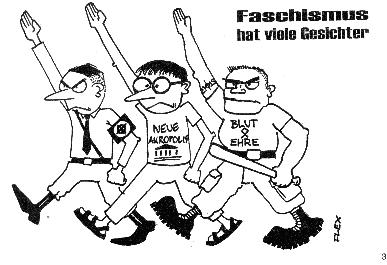Introvigne says that cult critics claim brainwashing is proven to exist thanks to the testimony of "apostates", meaning "former members who have become active opponents." "Apostates" are "a minority, perhaps somewhere between 10 per cent and 20 per cent": to prove this, he quotes, inter alia, his own flawed study on former members of New Acropolis in France (which I analyze here). What is totally misleading about the statement are not the figures. The testimony of critical former members is of crucial importance for the factual information and the inside documents such people are able to provide. Two hundred satisfied consumers are not as important as one former employee who brings us pictures proving the butcher was selling stray cats instead of veal. It is not a question of how "representative" such people may be of the "feelings" of former members. However, Introvigne has built his whole thesis in such a way as to exclude facts, so he is forced to ignore this very important point. Introvigne provides us with an ethically intriguing notion: "It is also important to recognize that violence may also erupt from organized opposition to new religious movements."He explains this to mean that providing critical information to potential consumers about a cult may lead to the cult using violence against the critic: such violence, apparently, becomes the critic's own fault. True enough: people in Italy who could have led long and peaceful lives have been killed because they criticized the Mafia. However I would disagree with Introvigne in putting the blame on the victims. "Anti-Cult" or Political Violence? But apart from such violence by cults, does violence against cults exist? Introvigne says there have been two closely related cases of violence in Europe: "Premises of both the Unification Church and New Acropolis (a movement headquartered in Argentina) were bombed in Paris."It was presumably on the slim basis of these two explosions - neither of which caused loss of life - that Introvigne's article was judged to be suitable for printing in a magazine called Terrorism and Political Violence. Apparently the reviewers did not bother to check out the facts. First of all, New Acropolis ceased to be "headquartered in Argentina" in the very early '70s. A harmless mistake in itself, but reprehensible in a self-styled scholar who claims to have said the final word about New Acropolis in the study we already mentioned. Moon's Unification Church does claim to be a religion. New Acropolis, on the other hand, strongly refuses such a label. Either Introvigne should admit this group falls outside the issue of "cults" or he should accept the cult-critics' definition of a cult as any group which practises a certain kind of behaviour. Although they are not both "religious
minorities", the Unification Church and New Acropolis do share extensive
involvement in the darkest years of Latin American history and an intense,
almost hysterical anti-Communism which led the UC to found the "World Anti-Communist
League" and NA founder, Jorge Angel Livraga, to claim (perhaps a little
excessively) to have personally set off the Uruguay golpe of 1972.
Unanimous testimonies from independent sources in Spain, Belgium, Italy,
Columbia and Greece concur in saying that NA uses Fascist salutes and black
and brown shirts in their paramilitary groups.
 It is rather easy to guess that the Paris bombs were set off by anti-Fascist extremists for political purposes, without any interest in religion. Introvigne's article does emit one small
ray of hope. In the past, he always called "apostates", and especially
me, "professional enemies" of the groups they oppose. For two years,
I have been explaining that I do not work as an "apostate" but as a professional
interpreter. I thought there was no chance of his understanding, but I
see that at last he uses the much more correct definition of "active
opponents". This is comforting: it means my website has been of some use
in making Dr Introvigne think and write more clearly.
|